MICHIGAN


STUDENT MEMBERSHIP
All P1 pharmacists eligible for free fouryear membership. (p. 7)
Consider
MSPT FOCUS
The





All P1 pharmacists eligible for free fouryear membership. (p. 7)
Consider
The



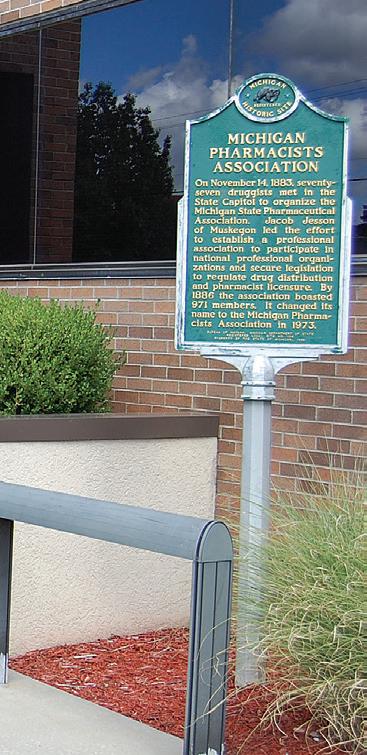

22
3 President’s Platform
MPA President Sarah Hill talks about the power of local associations.
15 Remembering Hank Fuhs
Former CEO Larry Wagenknecht reflects on the life of pharmacy advocate Hank Fuhs.
4 CEO Corner
MPA extends its Strategic Plan for another year.
18 Professional Practice
Utilizing a steroid-induced best practice alert (BPA) to encourage insulin prescribing for patients with recent hyperglycemia.
6 CE Calendar
All the latest continuing education offerings from MPA.
24 MSPT President
Becoming a certified pharmacy technician can open a world of opportunities.
Mark Glasper; EDITOR: Ryan Weiss; PUBLISHER: Bryan A. Freeman

BY SARAH HILL, Pharm.D.;
president, Michigan Pharmacists Association
Many of you know that my journey with the Michigan Pharmacists Association began with the Wayne County Pharmacists Association. What started as a course requirement during my P2 year at Wayne State University soon turned into a passionate commitment. For the past 16 years, I’ve served on the WCPA executive board in various capacities — committee member, secretary, president and chair. Through these roles, I’ve come to realize just how crucial local associations are to the success of MPA. They are the backbone of our association and a dynamic way to make a meaningful impact on the practice of pharmacy in our state. Our local associations are key for grassroots efforts and are ideal for building relationships among Michigan pharmacy professionals.
are the most timely and important topics for MPA to focus on in the upcoming years. The House of Delegates plays a critical role in shaping the direction of MPA. One of the benefits of your MPA membership is a complimentary membership to one local association. We currently have 12 active local associations across the state and we would love to have even more! While many members choose to affiliate with the association closest to where they work or live, you are free to select any local association that resonates with you. Despite moving an hour away, I continue to be a proud member of Wayne County, which will always feel like home.
"While starting something new can seem daunting, rest assured that there are experienced individuals ready to help you every step of the way."
This year I’ve encouraged you to reflect on your engagement with MPA and explore new ways to become involved. One of the most rewarding avenues is active participation in local associations. Engaging with these smaller, localized groups offers an incredible opportunity to contribute to your profession, expand your professional network, and, quite frankly, enjoy yourself.
Local associations typically meet once a month, though this can vary. These gatherings are more than just meetings — they are a platform for discussing important legislative issues, receiving updates from MPA, organizing social events and participating in community outreach programs. My experience with WCPA has been rich and varied. I’ve had the pleasure of participating in flu clinics, health screenings, feather bowling, baseball games, mini golf for PAC, continuing education events and town halls with legislators. Participating in activities such as these with your local association can foster deep connections with fellow pharmacy professionals and expand your professional network.
Each local association is led by an executive board and stepping into one of these roles offers numerous opportunities for you to develop leadership skills. Local boards are always on the lookout for new members with fresh ideas and enthusiasm. Another perk of being an active member of a local association is that you are then eligible to represent your local at the House of Delegates, held during the Annual Convention & Exposition (ACE) each year. The House of Delegates is an opportunity for individuals, or local associations, to propose to the MPA Executive Board what they believe
Not sure if there’s a local association in your area? Visit the membership section of our website and check out the colorful map that highlights local representation. On the map, you will notice there are quite a few gray areas (indicating a county not currently associated with a local). MPA and the Local Association Development Committee would love to help interested individuals start (or revitalize previously lapsed) locals in those gray areas! MPA and the LADC are eager to support individuals interested in getting a new local association started. It takes just a few excited individuals to get the ball rolling and there are many resources available to guide you through the process.
Vice Speaker of the House of Delegates Robin Curtis, who leads the LADC, emphasizes the committee’s readiness to assist: “LADC is happy to meet with any person or group considering this process to ensure you have what you need to succeed!”
While starting something new can seem daunting, rest assured that there are experienced individuals ready to help you every step of the way.
Active involvement in local associations is a powerful way to contribute to the pharmacy profession, develop valuable skills and build lasting relationships. The strength of our profession lies in the engagement and enthusiasm of its members and your participation is vital to our collective success. Embrace the opportunity to be part of something meaningful and watch as your involvement transforms both your professional journey and our profession as a whole.
Local associations will always hold a very special place in my heart and I encourage every member to explore the opportunities they afford!


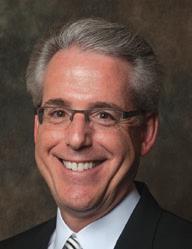
BY MARK GLASPER, chief executive officer, Michigan Pharmacists Association
The current 2022-2024 MPA Strategic Plan runs through the end of this year. Typically, we would have held a strategic planning retreat during the summer, invited representatives of every MPA component organization and affiliates to attend and created a new three-to-five-year strategic plan to be implemented in 2025.
However, our current plan still has some good mileage remaining on it, offering us the opportunity to save the expense of holding such a retreat this year. So, our goal became to stretch the current plan through 2025 and schedule the full-scale strategic planning retreat next summer.
In the meantime, we held a mini-retreat in July that included the MPA Executive Board and staff to tweak the existing plan for an additional year. The mission, vision and goals remained the same.
Mission: Unite and empower Michigan pharmacy professionals.
Vision: One pharmacy profession, maximizing health and wellness.
We considered the results of the MPA Membership Engagement Survey from earlier this summer and focused on making sure our objectives were still on target. Many thanks to past MPA House of Delegates Chair Katie Axford, who facilitated the session and kept us in line.
We also need to thank MPA Past President Charlie Mollien for repurposing the pharmacy acronym MTM –which many of you recognize as meaning “medication management therapy” – as a guiding influence for the original plan, which we have kept. For our purposes, MTM stands for:
Members First
Team Unity
Moving Forward
“Members First” captures what we’re always thinking about – our members. Building value for your membership investment is paramount, but that will only come if we’re always thinking of our members first. Everything we do is to strengthen member value, including advancing the profession.
“Team Unity” is a governance and operations bucket we developed. We are better because we are one. The MPA Executive Board guides our direction, including practice sections, committees, local associations, etc., and staff carry out that direction. Keeping and maintaining a
professional association management staff is key to making this equation work.
“Moving Forward” ensures financial success and we cannot move forward without financial growth and security. The underpinning of any successful business – and MPA is a business – is the stability of its infrastructure and foundation.
Here's a look from 30,000 feet at what we accomplished:
Goal 1: Members First (Strengthen Member Value)
• Advocate for accessible and sustainable pharmacy services.
• Promote the visibility of membership benefits/value.
• Increase member retention rate to at least 70%.
• Grow paying membership by at least 2%.
Goal 2: Team Unity (Improve governing effectiveness and operational management)
• Reach an average MPA employee satisfaction score of four out of five in 2025.
• Optimize governing effectiveness of the MPA Executive Board.
• Promote diversity within staff and boards.
Goal 3: Moving Forward (Ensure financial profitability)
• Diversify and optimize revenue streams to improve balance of revenue sources and enhance financial stability.
• Enhance accounting reporting process to reflect current financial status of each MPA entity.
Going forward, MPA staff develops its annual operations plan which puts into motion the implementation of the Strategic Plan. The MPA Executive Board receives updates on the execution of the operations plan at every board meeting.
So, there you have it – MTM – our strategic planning acronym and the cornerstone of our MPA Strategic Plan through 2025!
MPA events, as well as health observances, are included below. For the most up-to-date information, please visit our online calendar at MichiganPharmacists.org/events
1-31
2-3
Tuesday, Oct. 1Thursday, Oct. 31 American Pharmacists Month Nationwide
Wednesday, Oct. 2Thursday, Oct. 3
ASHP National Pharmacy Preceptors Virtual Only
7-8
Monday, Oct. 7Tuesday, Oct. 8 ASHP Conference for Pharmacy Leaders Chicago
17-23
Thursday, Oct. 17Wednesday, Oct. 23 Michigan Pharmacy Week Statewide 24
Thursday, Oct. 24 MSHP Board Meeting Grand Rapids 25
25-27
26-29
Friday, Oct. 25 MSHP Annual Meeting Grand Rapids
Friday, Oct. 25Sunday, Oct. 27 NASPA Fall Meeting Columbus, Ohio
Saturday, Oct. 26Tuesday, Oct. 29 NCPA Annual Convention Columbus, Ohio
5-6
7
7-10
8
11
15
19
21
Tuesday, Nov. 5Wednesday, Nov. 6 PTCB Board of Governors Annual Meeting Chicago
Thursday, Nov. 7
CSPM Board Meeting Virtual Only
Thursday, Nov. 7Sunday, Nov. 10
ASCP Annual Meeting Aurora, Colorado
Friday, Nov. 8
MPA Board of Canvassers Virtual Only
Monday, Nov. 11
MPA Executive Board Meeting Virtual Only
Friday, Nov. 15
MSPT Board Meeting Virtual Only
Tuesday, Nov. 19
MSCP Board Meeting Virtual Only
Thursday, Nov. 21
MPF Board of Trustees Meeting In-Person, MPA Headquarters, Lansing
8-12
24-26
27-30
Sunday, Dec. 8Thursday, Dec. 12 ASHP Midyear Clinical Meeting
New Orleans
Tuesday, Dec. 24Thursday, Dec. 26 Christmas MPA/PSI Offices Closed
Friday, Dec. 27Monday, Dec. 30 MPA Office Open with Limited Staff
31-1
Tuesday, Dec. 31Wednesday, Jan. 1, 2025 New Year’s MPA/PSI Offices Closed
Please note: Some board and committee meetings may be subject to a change in format to virtual or in-person at the discretion of the members. Please check the online calendar or contact MPA@MichiganPharmacists.org for more information.

28-29
Thursday, Nov. 28Friday, Nov. 29
Thanksgiving MPA/PSI Offices Closed
FRIDAY, OCT. 25, 8:30 a.m.-4:45 p.m.
The MSHP Annual Meeting offers continuing education for pharmacists, pharmacy residents, student pharmacists and pharmacy technicians, along with a chance for exhibitors and sponsors to showcase products and network with MSHP members. https://www.lecturepanda.com/a/2024MSHPAnnualMeeting
MONDAY, NOV. 11, 5-6 p.m.
MPA presents: MI Pharmacy Law Update 2024, Quarter 4, Live Webinar
This program meets the pharmacy law educational requirements but does not include ethics & jurisprudence. https://www.lecturepanda.com/a/MIPharmacyLawUpdate2024Quarter4
Michigan Pharmacists Association (MPA) is accredited by the Accreditation Council for Pharmacy Education (ACPE) as a provider of continuing pharmacy education.
THURSDAY, NOV. 14, 1-5 p.m.
Point of Care Test & Treat Training (POCT) – Mixed format; Self Study & Live Webinar
The self-study component must be completed before the live session date.
https://fs27.formsite.com/7jFRIO/51ssdzcskw/index
WEDNESDAY, DEC. 11, 9 a.m.-5 p.m.
Pharmacy-based Immunization Training –Mixed format; Self Study & Live Webinar
The self-study component must be completed before the live session date.
https://fs27.formsite.com/7jFRIO/rvvtjkxxie/index
If you have any questions about any of these MPA education events, please email MPA@MichiganPharmacists.org


Dr. Ian William Mathison, 86, passed away in Murfreesboro, Tennessee, on Thursday, Sept. 26, 2024. He was born in Liverpool, England, on April 17, 1938, to William and Grace Mathison.
Ian grew up in England during World War II and attended the renowned Quarry Bank High School for Boys. He famously attended school with John Lennon, a key member of the school’s band, the Quarrymen, which later evolved into The Beatles.
Ian studied at the University of London, where he received a Bachelor of Pharmacy, Doctor of Sciences and a Ph.D. in medicinal and pharmaceutical chemistry. After completing his doctoral studies in 1963, he relocated to Memphis, Tennessee, where he was a professor of pharmacy at the University of Tennessee. In Memphis, Ian met and married his beloved wife, Mary Ann Gordon, in 1968. They had two children, Mark and Lisa. The family relocated to Big Rapids in 1977, when Ian was named dean of the College of Pharmacy at Ferris State University. He served as dean of the pharmacy school from 1977-2011.
Ian had a wide-ranging impact while at Ferris State. He created a historical pharmacy at the college in 1984, where donors and alumni contributed pharmaceutical artifacts to help further educate students on the history of the profession. He also led the development of the Pharmacy Alumni Association, which helped raise money to support up and coming pharmacy students. The Alumni Scholarship Fund proudly awards more than 50 scholarships each year to outstanding students. Ian also expanded degree offerings, creating the Doctor of Pharmacy degree program. Ian was preceded in death by his wife Mary Ann (1997). He is survived by his children Mark Mathison of Big Rapids and Lisa Mathison of Chicago; grandsons Connor of Chicago and Gavin of Big Rapids; and his brother Roger Mathison of Los Angeles.
Donations in memory of Ian may be made to St. Paul’s Episcopal Church in Murfreesboro and an online guestbook is available for the Mathison family at woodfinchapel.com


Thanks to a generous donation from MPA member Mike Nabolsi, current P1 pharmacy students in Michigan can sign up for a 4-year MPA membership for free! With MPA membership, you’ll receive:
Networking and mentorship opportunities
Access to workshops, seminars and webinars
Local and national advocacy – MPA is the ONLY association that advocates for pharmacists in all practice settings
Eligibility for MPA scholarships and awards
Access to MPA publications and newsletters
Discounted registration to MPA events such as the Annual Convention & Exhibition
Discounted rates on MPA continuing education (CE) programs



MPA is excited to launch a new partnership with Dr. Helen Sairany. The Trauma-Informed Workforce Certificate Training Program is a catalyst for personal transformation, enabling you to forge deeper connections with yourself, your work and your team.
Roughly 70% of Americans report experiencing some type of trauma. Two-thirds of young adults in the United States suffer a traumatic experience by the time they are 18. From the time they leave high school to start their postgraduate training, pharmacists have experienced tragedy, loss, neglect, or abuse. The social, emotional and mental impact of this trauma surfaces and is often exacerbated due to the stress of unbearable work conditions. When health care professionals experience trauma, collaboration and innovation come second to feeling safe.
In this seminar, participants will develop a foundation for creating a trauma-informed practice that can have a greater impact on them, their patients and those in their charge. This seminar is designed to promote higher job satisfaction, better work-life integration and less burnout for participants and their employees, resulting in a more informed and compassionate workforce.

Participants will:
• Bid goodbye to burnout and toxic patterns.
• Explore the potential of your workplace.
• Be mentored by an expert facilitator.
• Gain mastery in conscious decision-making.
Participants can take individual homestudy modules by clicking the link below or scanning the QR code.


BY BRYAN FREEMAN, chief strategy officer, Michigan Pharmacists Association

You probably have discovered the new Michigan Pharmacists Association website by now. It has a brand-new look and updated technology to better serve all members!
To get the most out of your member experience, you will need to create a new password for your MPA account. Your email address associated with MPA will serve as your username. When you attempt to login for the first time, you will be prompted to create a new password. Please follow the steps below to get logged in.
To create your new login...
• Follow this link.
• Enter your email on file.
• You'll be asked to create a new password and review/update your profile information.
Once you've logged in, check out your Member Compass – our new portal for you to update your profile, see events that you are registered for, pay invoices and more. You can find your Member Compass by clicking on drop down arrow next to your name in the upper right-hand corner of the screen. Be sure to update your profile!
With your new login, you will be able to:
• Register for events.
• Update your profile information.
• Track event attendance.
• View/pay membership dues and other invoices.
• ...and more!
Additional features added to the new website include:
• Setting up auto-renewals for your membership dues.
• The ability to pay for membership dues and events or products with your credit card, debit card or directly from your checking account.
• View a member directory. You can refine your search by practice section or local association membership. The membership directory can be accessed in the Member Compass.
• View your years of membership with MPA.
Should you have any questions about your member profile or need help with accessing your account, please contact MPA@MichiganPharmacists.org
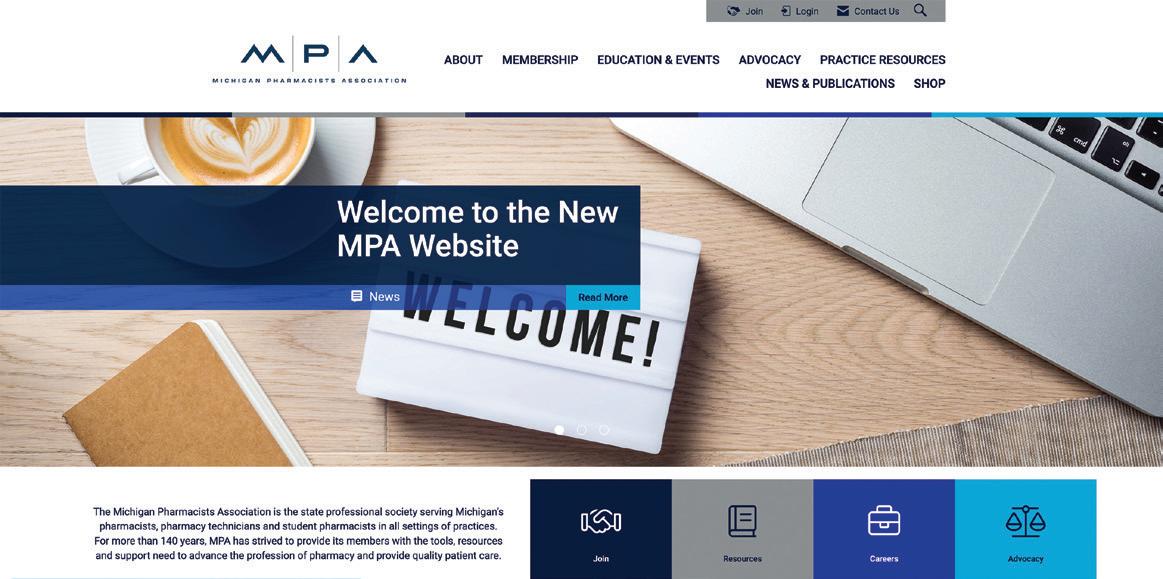
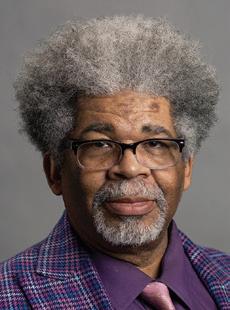
Dean of campus operations, Wayne County Community College District – Ted Scott Campus
Member Since: 2012
Describe Your Role/Day in the Life: As a college administrator, I promote the university by participating in community, state and national events or meetings, and by developing partnerships with industry and secondary education institutions. In addition, I advise students on issues such as course selection, progress toward graduation and career decisions. My other duties I’m responsible for are developing curricula and recommending curricula revisions and additions, as well as designing or using assessments to monitor student learning outcomes. My past roles functioning over pharmacy technician programs have prepared me in transitioning into a more responsible role in overseeing campus operations of a college campus.
Why You’re an MPA Member: I’m a member of MPA because I realize my involvement is important to our profession; not only for pharmacists but for technicians as well. I’ve never looked at myself as just a technician, but as a health care professional. Even as an instructor, I prepared my students to think as pharmacists because I knew the day would come that we would transition into more advanced roles. MPA has always been supportive of the role of the pharmacy technician and has shown their commitment to providing the opportunity for technicians to have a voice. My involvement with MPA shows other technicians the importance of being involved and committed to serving their local and state pharmacy organizations. The different hats that I wear show them the different opportunities which are available for them and how they can make a difference in our profession.
• June 2022: Appointed by Gov. Gretchen Whitmer to the Michigan Board of Pharmacy
• January 2024: Served as MPA Michigan delegate to the APhA House of Representatives
• January 2024: Began term as president for Wayne County Pharmacists Association
How MPA Has Helped You Achieve Any Accomplishments: MPA has helped me succeed in these roles by allowing me to align with other pharmacists and technicians, form relationships, develop my skills and gain valuable insight on how to advance our profession. Serving in different positions throughout MPA has shown other organizations my passion, commitment and drive to advance and promote our profession in a positive light. I’m a firm believer that your gift makes room for you and brings you into the presence of great people. I’m grateful and humbled for the doors that have been opened for me, the roles I’ve been able to work in, and the tables I’ve been able to sit at.
New MPA members (July. 1-Sept. 30)
Ali Abdallah
Ayomide Abejide
Andrew Aboona
David Adamus
Reem Ahmad
Miriam Ahmed
Leen Akil
Fatimeh Al-mugoter
Furat Al-Waely
Mohammed Alahmadi
Ali Alhasson
Essra Aljabery
Majd Aljoaani
Abdalrhman Alkhateeb
Abdulaziz Alkhateeb
Mesk Alsaffar
Adhwaa Alshohatee
Noman Alwajih
Ghaith Amari
Justice Anderson
Adinarayana Andy
Jennah Angel
Adriana Annoni
Mostafa Assi
Celina Ataya
Jason Ausili
Marria Awad
Hadeel Ayesh
Lilly Bailey
Ash Baker
Jessica Barbar
Aaron Barrigar
Olivia Bartunek
Kenneth Bates
Isabella Beals
Nathan Beers
Carol Beldyga
Lauren Bell
Ana Belza-Mai
Radha Bhavsar
Jada Black
Sean Bly
Stephen Bly
Abigail Bolton
Kimberly Bottenberg
Brittany Bowman
Mike Bowman
Edward Brady
Gabriella Brekke
Madison Briggs
Colby Brown
Michael Brownlie
Annette Bruner
Jordan Bruni
Brooke Butris
Elizabeth Carl
Alexis Carriere
Reem Chamas
Abigail Chambers
Uday Chandpuri
Keagen Chatel
Marta Ciolkowska
Paul Clark
Avery Coleman
Mycah Cooper
Daniel Cordova
Madison Craven
Kennedy Culver
Alaina Curry
Ryan Cushman
Lindsey Dahlquist
Dana Darwiche
Adeeb Deiri
Matthew Deitering
Paige Deitering
Tracy DeJager
Jocelynn Detvo
Sophia Dimovich
Nicholas Dirker
Mary Disho
Lara Dmitruchina
Pio Do
Jane Doe
Emma Doederlein
Laleshka Dominguez Negron
Aliaa Eisa
Chantel El-Sayah
Kathryn Ely
Colin Emmendorfer
Jessica Erkkila
Christian Ertl
Mirna Eshaya
Sara Fakhruldin
Ryley Farwell
Hassan Fayad
Taylor Fox
Bryan Freeman
Ben Galat
Jesus Galvez
Alisyn Gardner
Lura Gariepy
Samantha Gaspar
Olivia Gasparott
Claire Gilles
Mendi Gishto
Nikolina Gjonaj
Kimberly Gollhofer
Cherise Gonzales
Sarah Goran
Sarah Grazia
Amber Green
Susan Guo
Natale Guo
Andrea Gutierrez
Katelynn Hadd
Hala Haidar
Teriyah Haji
Flowrita Halaq
Michael Hallada
Nathan Harde
Sandirria Harris
Lauren Harven
Fatima Hasan
Mehreen Hasan
Emily Herum
Abigail Hibbler
Matthew Hickson
Karleigh High
Curran Hillis
Phu Ho
Renee Holmes
Rachel Howell
QiQi Hu
Julie Huynh
Darren Jacks
Aayah Jadallah
Donna Jehnsen
Jaclyn Johnson
Said Jomaa
Noah Jubie
Tomasz Jurga
Rony Kachouh
Tanel Kassab
Reyam Katchi
Jacob Kennard
Riham Khemmoro
Jessica Killenbeck
Jay Kim
Jonathan Kleyer
Gregory Kozmor
Makara Kramer
Demetrius Kukulka
Yusra Kulam
Chaleigh Kutzli
Brian Lafata
Elizabeth Lamb
Vincent Larocca
Zena Latunski
Thien Le
Cong Triet Le
Amy Liepins
Amaria Lightfoot
Hosne Liju
Roberta Lister
Stephanie Lopez
McKenna Lorenz
Tala Mabrouk
Reem Mahgoub
Gretta Mahowald
Crystal Main
Laura Manzey
Rachel Marcotte
Robert Martin
Carter Mason
Michaela Maticevic
Rylie Matta
Alexis May
Sean McCarthy
Janet McEnroe
Katrina McNeilly
Luke Mehl
Dana Mekawi
Eric Meldrum
Ashley Mesman
Abdul Mia
Aleksandra Milosevski
Nawar Mohamed
Nerielis Montalvo-Rivera
Kaleb Moore
Elizabeth Morachevska
Carson Mulcahy
Jacob Munger
Sara Naje
Srushti Narkhede
Derrick Nelson
Andrew Nguyen
Vy Nguyen
Maria Nicolas
Lindsey Nordin
Haouraa Noureddine
Megan Nuffer
Guadalupe Padilla-Correa
MacKenzie Parish
Amy Pasternak
Kesha Patel
Kathryn Pawlowski
Mackenzie Pettey
Mellisa Polderman
Angelina Pollice
Nicholas Popovski
Kristine Poppie
Diana Postigo
Shana Potempa
Atoreina Potrus
Luke Pritula
Austin Pytlowany
Aravind Ramanujam
Reese Ransom
Chelcie Reno
Paris Rice
Sydney Richmond
Cali Robinson
Joanna Robinson
Robin Rodriguez
Daniella Rodriguez
Bryce Roller
Samantha Ruble
Taylor Russell
Malaak Saad
Bella Salinas
Keegan Salisbury
Diana Sallum
Kathryn Salmeron
Lina Saloum
Pierre Samia
Jacqueline Sandiha
Jakob Sawinski
Mason Schafsnitz
Nicklas Schley
Elizabeth Schneider
Andrew Sebastian
Reda Seblani
Andrew Sebolt
Jacqueline Seyfarth
Michael Shank
Arian Shaska
Hannah Shelton
Mariam Shenaq
Manuel Shinko
Jenna Sielagoski
Emma Silverman
Ashley Simons
Monisha SL
Jack Smith
Kelli Smith
Michael Smith
Lateesha Smith
Anita Snow
Sabrina Spence
Brendan Stachowiak
Grace Stepanek
Riley Stephenson
Serena Stepho
Charles Styron
Mahveen Syeda
Jessica Sylvia
Erin Tanner
Rawan Tanous
Fatimah Thejeel
Amy Thieu
Harrison Thow
Micayla Timmer
Vyvy Tran
Antoni Trpcevski
Nicholas Trush
Imari Tsuruta
Farhana Urmi
Roslyn VanAbel
Emily Vangyi
Lena Vasylak
Mackenzie Veatch
Vincent Vella
Adriana Vilá Colón
Emily Vincent
Trevor Waldvogel
Natalie Walsh
Lillian Wang
Jason Watt
Marissa Wernette
Douglas White
Holly Wright
Jon Wybo
Joana Xhangolli
Emily Xiong
Justin Xu
Dima Yakoub
Celina Yang
Richard Yange
Mohamed Zahr
Mohammed Zeineddine
Isabelle Zerfas
Yuli Zheng
Kexin Zheng
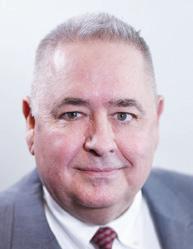
BY RICK DRABEK, executive director, Michigan Pharmacy Foundation
The Michigan Pharmacy Foundation is a non-profit organization dedicated to advancing the pharmacy profession through education, leadership and innovation. The Foundation works closely with the Michigan Pharmacists Association “To Foster the Future of Pharmacy.”
One of MPF’s most impactful initiatives is the Health Professional Leadership Academy (HPLA), designed to cultivate pharmacy leaders. MPF’s leadership development initiatives are expanding to meet growing demand and additional funding is needed to sustain and grow these initiatives.
In today's rapidly evolving health care landscape, pharmacy professionals must become stronger advocates for their patients, communities and profession. Elevating pharmacy professionals' leadership roles as medication experts within health care teams will improve patient safety and therapeutic outcomes. Becoming influential leaders and advocates requires navigating complex health care systems and changing market conditions. Pharmacy schools and practicing professionals have identified and communicated the pressing need for more leadership development opportunities for their students and colleagues.
The HPLA program is an intensive, self-reflective six-month program that equips participants with the skills and knowledge necessary to become respected team leaders, collaborative health care partners and influential leaders in the pharmacy industry. Participants gain self-awareness and strategic thinking through a combination of instructional classes, behavioral assessments, one-on-one and peer mentorship, and the development of a real-world individualized leadership development plan. Additionally, participants develop essential leadership, team building and advocacy skills.
Leadership development is crucial for both organizations and professions. Since its inception, the HPLA has successfully graduated leaders who have made significant contributions to the pharmacy
profession. These HPLA alumni are driving innovation, improving patient care and shaping the future of health care. Their impact on the pharmacy profession is undeniable. Additional support is needed to fund current programming and expand the HPLA program into the future to reach more aspiring leaders, as well as amplify our impact on the pharmacy profession. For more information about the HPLA program, please visit the MPF Health Professional Leadership Academy website
With your financial support, MPF can continue to fund our current program and expand the HPLA program to address the growing need for this training within the pharmacy profession.
Your donation to HPLA is not just a donation – it’s an investment in the future of health care. By contributing, you play a vital role in shaping a healthier, more resilient community. You will directly empower the future guardians of healthy communities and advocates for better patient outcomes. Please join us in making this vision a reality by donating to the Michigan Pharmacy Foundation.
Thank you for considering donating to the Michigan Pharmacy Foundation’s Health Professional Leadership Academy. Together, we can ensure the current and next generation of pharmacy leaders are well-prepared to meet the challenges of tomorrow!


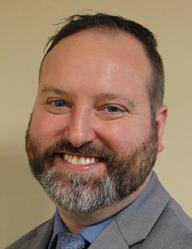
BY ERIC ROATH, director of government affairs, Michigan Pharmacists Association
With 2024 being a presidential election year, politics are – for better or worse – at the top of most of our minds. Now is the perfect time to reach out to your federal legislators and let them know which issues matter to you. Here’s your quick-reference guide to current issues affecting pharmacy at the federal level.
While the Pharmacy and Medically Underserved Areas Enhancement Act is still in play, the narrower Equitable Community Access to Pharmacists Services (ECAPS) bill has experienced recent momentum. Language from ECAPS narrowly missed an end-of-year omnibus package in 2023 and has received an unofficial score from the Congressional Budget Office identifying the cost to implement the bill at slightly more than $2 billion.
Given the strong support of ECAPS by over 82 organizations representing patients, seniors and rural Americans, there is a chance that the bill could be incorporated into an end-of-year health care package.
Bill Description Legislator Support (MI)
Equitable Community Access to Pharmacist Services Act (H.R. 1770, S. 2477) would ensure patients continue to have access to essential pandemic services provided by pharmacists including:
• Testing: COVID-19, influenza, respiratory syncytial virus (RSV) and strep throat
• Treatment: COVID-19, influenza, strep throat, RSV
• Vaccinations: COVID-19, influenza, pneumococcal, hepatitis B
House of Representatives (Co-sponsors):
• Rep. Debbie Dingell (D, MI-6)
• Rep. John Moolenaar (R, MI-2)
Senate (Co-sponsors):
• Sen. Gary Peters (D-MI}
After numerous hearings on PBM practices and the opinions brought forth in the FTC’s Interim Report on PBMs, we are closer than ever to these much-needed reforms. Numerous bills have been put forward in both chambers on Congress, with some of these being integrated into larger packages that have advanced through the legislature.
Modernizing and Ensuring PBM Accountability Act (S. 2973) bans spread pricing in Medicaid managed care by requiring fair and transparent reimbursement to pharmacies and saves over $1 billion. These provisions were integrated in The Lower Costs, More Transparency Act (H.R. 5378) passed out of the House of Representatives with bipartisan support.
House of Representatives (YEA Votes):
• Rep. Jack Bergman (R, MI-1)
• Rep. Debbie Dingell (D, MI-6)
• Rep. Bill Huizenga (R, MI-4)
• Rep. John James (R, MI-10)
• Rep. Lisa McClain (R, MI-9)
• Rep. John Moolenaar (R, MI-2)
• Rep. Hillary Scholten (D, MI-3)
• Rep. Haley Stevens (D, MI-11)
• Rep. Shri Thanedar (D, MI-13)
• Rep. Rashida Tlaib (D, MI-12)
• Rep. Tim Walberg (D, MI-5)
Better Mental Health Care, Lower-Cost Drugs, and Extenders Act (S. 3430) includes the No PBMs Act (H.R. 5400/S. 2436) which requires CMS to define reasonable and relevant contract terms in Medicare.
Pharmacy Benefit Manager Transparency Act (S. 127) prohibits PBMs from arbitrarily, unfairly, or deceptively clawing back reimbursement payments or increasing fees or lowering reimbursements to pharmacies to offset changes to federally funded health plans.
House of Representatives (co-sponsorHR. 5400)
• Rep. Debbie Dingell (D, MI-6)
No Activity

This year, federal lawmakers introduced legislation that would prohibit drug companies from imposing restrictions on access to 340B drug pricing program discounts through community and specialty pharmacies, ending restrictive drugmaker policies that have reduced access to billions of dollars in 340B savings for safety-net hospitals, health centers and clinics serving patients with low incomes.
340B Pharmaceutical Access to Invest in Essential, Needed Treatments & Support (PATIENTS) Act (H.R. 7635) would clarify that the 340B statute requires participating drug companies to provide eligible outpatient drugs at discounted prices to covered entities that partner with community and specialty pharmacies to dispense these drugs to their patients. It would prohibit drugmakers from placing additional conditions on covered entities for the use of these pharmacy partners and exact monetary penalties from those that do not comply.
House of Representatives (co-sponsors):
• Rep. Shri Thanedar (D, MI-13)
• Rep. Rashida Tlaib (D, MI-12)
If you have questions about these or other regulatory issues, please contact Eric Roath, MPA Director of Government Affairs, at ERoath@MichiganPharmacists.org

BOOK YOUR HOTEL ROOM NOW!

FRIDAY, APR. 11 – SUNDAY, APR. 13
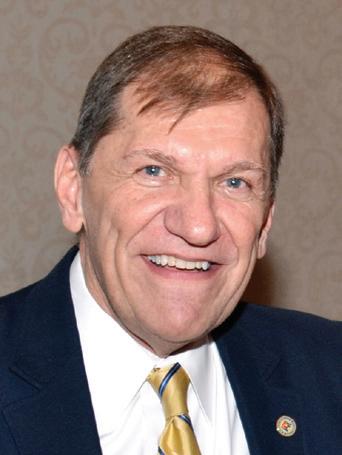
BY LARRY WAGENKNECHT, Pharm.D., MPA CEO 1994-2021
Michigan pharmacy lost a strong advocate on Aug. 1 with the passing of Henry “Hank” G. Fuhs Jr. after a battle with vascular dementia. Hank is survived by his sons: Henry (Adrianne) Fuhs III and Bernie (Ivonne) Fuhs; seven grandchildren and two younger brothers.
Hank, 83 – though he always was “29” when asked about his age – was a very familiar face at MPA activities, where he always reminded those in attendance of the importance of political advocacy.


continued public service and political action on behalf of pharmacy in the state. Hank was also honored with the 2007 Pharmacist of the Year Award, MPA’s highest honor.
I had the opportunity to meet Hank when I first joined the staff at MPA in November 1983. Over the 41 years that I have known Hank, he always had a smile on his face and a positive view of the future for the profession. Hank was generous with his time to the profession, community, state and country – always committed to making each a better place. In addition to being a pharmacist, Hank enlisted in the Air National Guard in 1964 and spent 30 years serving our country. He retired from his service as a lieutenant colonel.
Hank was graduate of Ferris State Institute (now Ferris State University) and spent his career in community pharmacy. He understood the importance of pharmacists providing health care services and advice to all members of the community, especially those without insurance. He also understood the challenges that faced the pharmacy profession and MPA.
Hank’s hobby was politics. For more than 40 years, he served as the secretary for Michigan Republican Party. He lost his position in 2023 as a result of the turmoil within the Michigan GOP. Hank had served on the Pharmacy PAC Board since its creation, much of which he served as chair. MPA and Pharmacy PAC honored Hank and his commitment to the profession by creating the Hank Fuhs Good Government Award, which is given to pharmacy professionals in recognition of their
While Hank was partisan with his politics, when it came to pharmacy, he was the most non-partisan person I have known. He was all about creating changes to make pharmacy better – regardless of who was in the majority, or whether the legislator was a Republican or Democrat. He was known and respected by both Republicans and Democrats throughout the state.
One of my lasting memories about Hank occurred when we were in Washington, D.C., meeting with the Michigan members of the U.S. Senate and House of Representatives. We arrived at the office of long-serving Democratic Sen. Donald Riegle without an appointment. Hank asked that Sen. Riegle be alerted that Hank Fuhs was there to talk with him. To my great surprise, Sen. Riegle immediately came out and greeted us and we spent the next two hours talking about Michigan politics and pharmacy issues. Previously, every visit resulted in speaking with a staffer.
Hank was one of the most creative individuals I have ever worked with. He never recognized anything as a barrier; just an obstacle and a new challenge to figure out.
Hank and his love for advocacy touched many within our profession and that’s where he left his mark. He truly cared for his fellow pharmacists and pharmacy technicians and would do anything he could for a friend. His participation, advocacy and love for the profession will not be forgotten. Rest in peace my friend.


BY ASHLEY BUILTA, Pharm.D., MPA director of professional development and education
In case you missed it – I’m back!
For those of you who have met me, coming to work at the Michigan Pharmacists Association feels almost inevitable. For those of you I haven’t – hello! I can’t wait to get to know you better.
I graduated from Wayne State University with my Pharm.D. in 2014. I was a very involved student in the American Pharmacists Association and MPA. I ramped up student involvement at WSU and was elected to be the founding chair of the Student Pharmacist Executive Council (SPEC). As chair of SPEC, I had the privilege of serving as the first student pharmacist to sit on the MPA Executive Board. A huge thank you to my fellow 2013 board members who took that little student pharmacist under their wing.
I then completed the 2014-15 Executive Fellowship – or as it was then called, the Fellow of Association Management and Business Development. After graduation, I went to work with Maria Young at University Pharmacy, helping precept the student immunization clinics and Wellness Warriors. I then went to Rite Aid and became manager far before I felt ready for it. I had good years there before the COVID-19 pandemic hit and I burned out.
Once I left Rite Aid, I worked as an inpatient clinical pharmacist in a hospital setting before deciding that midnight coverage was not great for my autoimmune condition. I settled into a PRN position with Ascension Pharmacy inside the Clinton, Eaton and Ingham County Community Mental Health building, where we dispense for the mental health clinics in the building and nursing homes and adult foster care facilities in the area. I still work there, just on Fridays, to help keep my finger on the pulse of the bench. Did I mention that I was also co-instructor for the Patient Care Lab 1 course at Wayne State’s College of Pharmacy in winter 2024 and worked as the director of operations at a metro-Detroit literacy nonprofit for a year and a half?
After writing all that down, it feels like I’ve worked in most practice settings, except maybe nuclear and compounding. I’ll rely on you, dear members, to help point out where else to visit.
Why have I been in so many places? At the heart of it, I love people. I love to see what we can do with the profession. I got a hands-on education on what it means to practice in those settings and a glimpse of what more pharmacists, technicians and students can do in those roles.
I’m an extrovert and love watching people get excited when they talk about what they did as a pharmacist or technician that day. Please, tell me more about the drug interaction you caught, the patient you counseled on using their inhaler correctly and the other health care professionals you work with who couldn’t live without their pharmacist. I really do love to hear about it.
Resilience is built when we identify with something larger than ourselves, when we hold multiple identities and can turn to those to get us through the tough days. I’m sure like many of you, I used to identify first as a helper – the pharmacist that was always there when my patients needed me. I spent hours driving to and helping at COVID-19 testing sites when there weren’t enough volunteers to run the tents. I walked over to the emergency response specialist at the health department
I was working at as a community health worker and reminded her that pharmacists give immunizations all day long and that I could help at the COVID-19 immunization clinics they were trying to figure out how to staff. I am proud of the work I did during those stressful (and honestly traumatic) times, but boy, did I burn myself out.
That’s when I turned back to my pharmacy network and my pharmacy community. I called up my friends and cried in the parking lot of Twelve Oaks Mall with them when I felt hopeless. I attended a panel hosted by my alumni network, reconnecting me with pharmacists I hadn’t seen in almost 10 years. It was those small reconnections that reminded me I’m not alone. There’s a whole community of pharmacy people who love and care about this profession and the people in it.
I’m excited to reconnect with you and find out what you want to see from education and events. My hope is to continue to build our pharmacy community with more events, especially at the local level. Let’s figure out what innovative things you’re doing that need a megaphone. Let’s build a fun local event that can also have CE accreditation.
It is an honor and a privilege to be in this newly created role of director of professional development and education. I deeply believe that developing ourselves as professionals and the education required to do that go hand in hand.
Please reach out to me at ABuilta@ MichiganPharmacists.org with your ideas for events and continuing education. I’m here to help!





BY NICOLE BULLOCK, Pharm.D., MPH; ANNA EURSIRIWAN, Pharm.D.; and KEVIN SZYSKOWSKI, RPh
Glucocorticoids are indicated for the treatment of many conditions. However, these agents are known to cause several side effects, including profound hyperglycemia. The hyperglycemic effects of glucocorticoids can occur regardless of whether patients have diabetes mellitus at baseline.1 Prior studies suggest that glucocorticoids can raise blood glucose by up to 68% above baseline.2 Current practice guidelines from the American Diabetes Association recommend the use of intermediate-acting insulin NPH for patients with preexisting diabetes who receive short-acting steroids in a hospital setting.3 The ADA recommends pairing long-acting steroids such as dexamethasone with a long-acting insulin (such as insulin glargine) in patients who have diabetes.
Henry Ford Health System utilizes a steroid-induced hyperglycemia best practice alert (BPA) to encourage insulin prescribing (insulin NPH or glargine) for patients with recent hyperglycemia (blood glucose more than 200 mg/dL within 24 hours) and a new steroid order.
This BPA prompts providers who order steroids to order insulin from a “steroid-induced hyperglycemia” order set that is linked to the BPA. Providers may also choose to initiate a glycemic control protocol and a point-of-care glucose meter testing regimen to closely monitor for hyperglycemia.
Providers have the option to open the order set and select a basal insulin regimen (insulin NPH or glargine) or ignore the alert. Despite the implementation of the steroidinduced hyperglycemia BPA and associated insulin order set, methylprednisolone remains one of the most prevalent medications associated with reported adverse drug reactions at Henry Ford Jackson Hospital.
We conducted a medication use evaluation to assess the impact of the steroid-induced hyperglycemia BPA on insulin prescribing patterns and glycemic control among
patients at HFJH. This retrospective observational cohort study included adults admitted to HFJH between Aug. 1, 2022, and Aug. 1, 2023, who were initiated on a corticosteroid within 24 hours of having a documented episode of hyperglycemia (blood glucose more than 200 mg/dL). Vulnerable populations and patients with an active insulin order at the time of the BPA were excluded. The target sample size was 70 randomized cases based on sampling guidance from The Joint Commission.4 This study was reviewed and approved by the Henry Ford Health System Institutional Review Board.
The primary outcome was the frequency of insulin prescribing in response to the BPA. Secondary outcomes were median time to insulin ordering after the BPA and type of insulin regimen prescribed. The difference in average blood glucose between patients whose prescribers ordered insulin in response to the BPA (responder group) versus patients whose prescribers did not (non-responder group) was also assessed. Safety outcomes included the incidence of steroid-associated adverse drug events and hypoglycemia. Data were analyzed using descriptive statistics.
Ninety cases were reviewed. Ten patients met inclusion criteria and 80 were excluded due to having an active insulin order at the time of the BPA. Of the 10 patients included, five were in the responder group and five were in the non-responder group (Table 1). Insulin lispro was ordered for all five patients in the responder. Insulin glargine was also ordered for three out of five patients in the responder group. Notably, insulin glargine was a home medication in all three of these cases and was not ordered from the BPA order set. The median time to insulin prescribing post-BPA was four hours (Table 2). Average blood glucose in the responder group was 260 mg/dL against 147 mg/dL in the non-responder group. No patients in either group experienced other adverse drug events or hypoglycemia.
"The primary outcome was the frequency of insulin prescribing in response to the BPA. Secondary outcomes were median time to insulin ordering after the BPA and type of insulin regimen prescribed. The difference in average blood glucose between patients whose prescribers ordered insulin in response to the BPA (responder group) versus patients whose prescribers did not (non-responder group) was also assessed. Safety outcomes included the incidence of steroid-associated adverse drug events and hypoglycemia. Data were analyzed using descriptive statistics. "

The main finding of this study was that the steroid-induced hyperglycemia BPA insulin order set is not widely used at HFJH. Rather, providers at HFJH were more likely to utilize a “glycemic control protocol” order set, which includes sliding scale insulin lispro as the default insulin order. Average blood glucose was lower in the non-responder group. However, the non-responder group also had comparatively fewer blood glucose checks and fewer patients with type 2 diabetes. Key limitations of this study included the retrospective design and a small sample size due to exclusion of patients with an active
insulin order at the time of the BPA. To better understand the burden of steroid-induced hyperglycemia at HFJH, future studies might assess glycemic control with sliding scale rapid-acting insulin compared to long-acting insulin in patients with steroid-induced hyperglycemia.
1. Tamez-Pérez HE, Quintanilla-Flores DL, RodríguezGutiérrez R, González-González JG, Tamez-Peña AL. Steroid hyperglycemia: Prevalence, early detection and therapeutic recommendations: A narrative review. World J Diabetes. 2015;6(8):1073-1081. doi:10.4239/ wjd.v6.i8.1073
2. Akshaya N, Krishna R, Venkateswaramurthy N. Steroids Induced Hyperglycemia: Its Effects and Management. Journal of Drug Delivery and Therapeutics 2023;13(6):166-171. doi:10.22270/jddt.v13i6.6074
3. American Diabetes Association Professional Practice Committee. 16. Diabetes Care in the Hospital: Standards of Medical Care in Diabetes—2022. Diabetes Care. 2021;45(Supplement_1):S244-S253. doi:10.2337/ dc22-S016
4. Sampling Chapter TJC (v2022A1). Accessed August 30, 2023. https://manual.jointcommission.org/releases/ TJC2022A1/SamplingChapterTJC.html

The Michigan Pharmacists Association held elections for its next president-elect from Sept. 9-23. Michelle J. Kelly defeated John S. Clark in a tight race and will become MPA’s 142nd president in 2026!
Prior to the election, each candidate was asked to outline their vision for MPA as president. Below are Kelly’s responses:
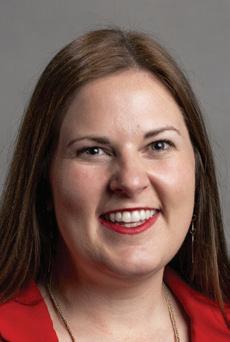
Michelle J. Kelly has been employed with Ferris State University College of Pharmacy in Big Rapids for the past seven years, where she currently holds the position of associate professor of pharmacy practice. She is also an on-call pharmacist with Meijer Pharmacy. Kelly (formerly Sahr) is a 2016 graduate of Ferris State University, where she earned her Pharm.D., and completed a PGY-1 residency with Meijer Pharmacy, Ferris State University and Pfizer in 2017. Kelly is a Board-Certified Ambulatory Care Pharmacist, NASPA Community Pharmacy Based Point-of-Care Testing trainer, APhA Medication Therapy Management trainer, APhA Pharmacy-Based Immunization Delivery trainer, Fellow of Michigan Pharmacists Association and Michigan Pharmacy Hall of Honor inductee. Kelly has been a member of Michigan Pharmacists Association for the past 12 years. Through her membership with MPA, she has served as a board member and president for the Kent County Pharmacists Association; as a director of the Michigan Society of Community Pharmacists; a member of the MPA New Practitioner and Membership committees; and several committees with the Michigan Society of Health-System Pharmacists. She is currently completing a three-year MPA Executive Board member term as one of the MSCP representatives. Kelly is also an active member of the American Pharmacists Association, National Community Pharmacists Association and American Association of Colleges of Pharmacy. Kelly currently resides in Big Rapids.
List what you consider MPA’s priority projects or programs should be– reflecting either an expansion of current activities or entirely new services: MPA’s Strategic Plan provides a roadmap for the association and our board, guiding our actions and priorities in the upcoming year. I would like to highlight key aspects of our focus areas that will be essential for the MPA's progress.
• Goal #1: Members First: Our foremost goal is to enhance the value of MPA membership, making it an indispensable asset for pharmacy professionals. We want members to easily recognize the benefits of their membership, eliminating the need to ask, "what has MPA done for me?" A critical part of this goal is advocating for accessible and sustainable pharmacy services, including fair reimbursement for dispensing. We have a diverse membership capable of supporting this initiative — from developing services and piloting programs to expanding them through legislation and partnerships. It's also crucial to provide our members with the resources, education and tools
necessary for their success. While we acknowledge the involvement of many members, we strive to ensure every voice is heard, whether through committee participation, board service, or completing membership surveys. For the latest updates, I highly recommend subscribing to PRN, MPA’s bi-weekly newsletter.
• Goal #2: Team Unity: The MPA board and CEO collaborate closely to set the association's direction, but the staff members execute much of the work. Our team is exceptional, and it is our responsibility to foster a supportive work environment to retain key talent.
• Goal #3: Moving Forward: Ensuring the MPA's financial health is critical for its longevity. Having recently celebrated our 140th anniversary, we aim to secure another 140 years by diversifying our revenue streams through strengthened partnerships with external stakeholders.
By focusing on these goals, I am confident in our ability to advance the profession and serve our members effectively.
What will be your top priority as president of MPA? Why do you believe this issue is important? As president of MPA, my top priority will be membership engagement. I am committed to achieving 100% engagement from our members, which I define as active participation in a local or regional association meeting, serving on a committee or board for any MPA-affiliated organization, or attending an MPA-sponsored conference or event. Our members are our greatest asset and their active involvement is essential for the growth and strength of our organization. By setting an ambitious goal of full participation, we can ensure that every voice is heard and that we are united in our mission to advance the profession.
In addition to fostering engagement, another key priority will be advocating for our profession. Advocacy must extend beyond the legislative arena. We need to champion the value of pharmacists every day — not only to lawmakers but also to future pharmacists, other health care professionals, third-party payers, and the general public. In recent years, our profession has faced unprecedented challenges, but our collective strength has proven to be a powerful force. We have a duty to keep pushing forward, promoting the essential role of pharmacists in health care and ensuring that our contributions are recognized and valued.
By focusing on these priorities, I believe we can build a more cohesive, engaged and influential association that effectively represents and supports our members and the profession at large.
Why do you think it is important for MPA members to be actively involved in the association? Active involvement in MPA is crucial because the association exists to serve its members, not its staff or board. Pharmacy is a diverse field with various practice settings, geographic regions and career stages. To effectively advance the profession, we need active participation from members across all backgrounds and experiences. Your voices are essential in guiding the direction of MPA's efforts.
While our MPA staff excels in organizing and executing initiatives, it is the members who shape the association's path. Through processes like the House of Delegates, we gather input from members to determine our priorities and strategies. The Executive Board then incorporates feedback from various sections and committees, ensuring that all perspectives are considered before finalizing any resolutions. This collaborative approach allows individual voices to influence both minor adjustments and significant changes within our association.
Engagement in the MPA goes beyond simply paying dues; it amplifies the value of your membership. Members who actively participate in committees, boards, or other volunteer roles find that their involvement enhances their professional growth and impact. I encourage you to reach out to me, MPA staff, or board members if you're interested in getting more involved. We are committed to finding opportunities that fit your schedule and bring value to both you and MPA. Your active participation is key to driving meaningful progress and ensuring that MPA remains a relative and responsive organization.


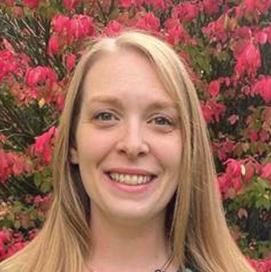
BY RYAN WEISS, MPA marketing and communications manager
Ryan Greenley was introduced to the power of pharmacy at a young age. When he was 14, his father was diagnosed with terminal cancer at the age of 42. It was nearly impossible to comprehend at the time for the young Greenley.
Then, a few months later, Greenley’s father was enrolled in an earlystage clinical trial for a medication that would become known as Gleevec (imatinib). This pill, taken once a day, allowed his father to survive until the age of 59, far longer than he was originally anticipated to.

“My father was supposed to be gone before I was 15 and a single pill taken daily allowed him to teach me to drive, to see me graduate, to see me get married, to meet his first grandchild and so many more incredible events,” Greenley said. “The power of medicine could not have been more strongly imprinted on someone than it was on me and as I grew to understand the health care field, I think I was always pulled toward the field which studied and understood the power of those medications best – pharmacy.”

Greenley’s fate in the pharmacy profession was sealed at 17 when he met a young woman named Jill Bianco, whose family were thirdgeneration independent pharmacy owners. The two would later marr y.
“Her drive for academic excellence demanded that I find enjoyment in studying if I wanted to spend time with her,” he said. “An influence that would pay dividends for years to come in pharmacy school together.”
That drive for excellence has culminated with Greenley becoming the Michigan Pharmacists Association’s 141st president. Greenley will be sworn in early next year. He hopes that during his year as president he can help invigorate others in the profession to discover the power of being an influential member of MPA.
“Unfortunately, the word influencer is now more closely associated with social media,” he said. “We have lost the realization of how important our mentors, professional connections and associations are to our lives, careers and profession.
“I challenge you to realize the influence you can have on others beyond your personal contribution to MPA. I challenge you to find the next ‘you,’ to find the next president of MPA, introduce them to the importance of your current activity and help them to see what their future activity can and will create. It only takes one simple meaningful event, one meaningful conversation, one influential moment to create a ripple effect of influence.”
Greenley began his pharmacy career by walking into the local ShopKo Pharmacy, where he asked if he could shadow the pharmacist there while working his way through the pre-med program at Michigan Tech University. The manager asked him to run the cash register regularly and he agreed.
Two years later in 2008, he was accepted into Ferris State University’s pharmacy program. Shortly after, he received a congratulatory phone call from Dave Poirier, who served as MPA’s president in 2001. Poirier asked to meet Greenley in person to discuss the importance of being active and involved in the profession.
At that meeting, Poirier told Greenley joining MPA was the best way for a pharmacy student to be involved and guaranteed he wouldn’t regret becoming a member.
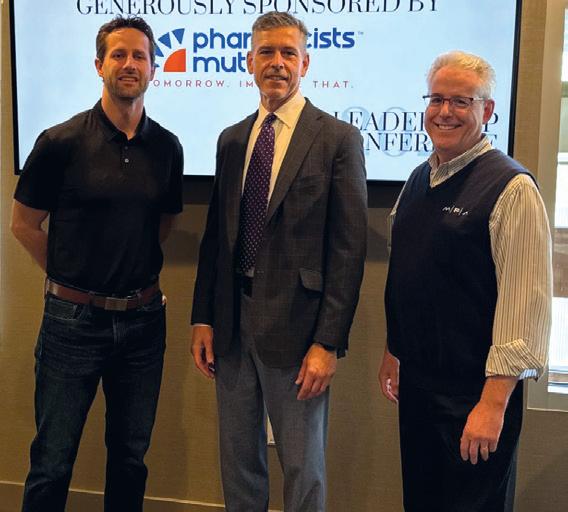
“To say that he was right would be an understatement,” Greenley said. “Nearly my entire career path has been influenced by relationships gained as an active MPA member. Relationships that have earned me mentors, support networks and professional contacts that continue to influence me today. These relationships have offered me the opportunities for promotions within my career, as well as invaluable resources at my fingertips to help me be successful.
“The value that I have personally gained from MPA has been incredible, and I can only hope to return, in some small part, a value back to the MPA by continuing to be an active member.”
Greenley graduated with his Doctor of Pharmacy from Ferris State in 2012 and was also the recipient of MPA Dean’s Professionalism Award. He is currently the regional pharmacy manager for Aspirus Health System.
Greenley previously served on the MPA Local Association Development Committee, MPA Professional Affairs Committee, the Michigan Pharmacy Foundation Board of Trustees, the Michigan Society of Community Pharmacists Board of Directors and the MSCP Member Education and Communication Committee. Greenley also served as president of the MPA Upper Peninsula Division and as a member of the Pharmacy Advocacy Response Team. He was elected to the MPA Executive Board in 2019 and was inducted into the MPA Hall of Honor in 2019.
For Greenley however, it’s not about the badges, pins or plaques he’s received during his time at MPA.
“Those items are nice because they serve as reminders of the confidence placed in me,” he said. “However, the items from my career that I value the most sit in a folder inside my desk and not on my wall or my coat. They are the letters of gratitude I have received from coworkers and the thank you letters for being a support resource when someone needed it most, even when they did not know until later. Simply, I am most proud of the positive influences I have provided to others, similar to having Dave Poirier push me in the right direction.”

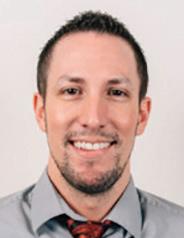
BY JASON PRIEST, MSPT president
Awareness should be considered one of the top discussion points in any career conversation, especially in regards to positions within the pharmaceutical field. Today’s pharmacy technician can work in a variety of different types of career settings, each with its own nuances. A majority of the time, a pharmacy technician will work closely with a licensed pharmacist; however, there are multiple positions available as a certified pharmacy technician (CPhT). A major misconception with the role has led many to believe that a pharmacy technician can only work behind the counter of a retail pharmacy – which is 100% not true! There are many positions in the field that become available once certified with the CPhT credentials.
The purpose of pharmacy compounding is to meet the needs of people who are unable to take medication in the commercial form. Compounded medications are ordered by a licensed physician, nurse practitioner, veterinarian or other prescribers and mixed by licensed and skilled compounding pharmacy technicians in a safe, carefully-controlled environment. Some compounds are sterile and some are non-sterile. Technicians working in these areas need special training and certification.
An inpatient technician works in a hospital and performs various duties such as delivering medications to
patient floors, prepackaging, compounding, restocking, preparing IV’s, TPN’s, reconciling medications, billing, adjusting patient accounts and many other tasks.
Pharmaceutical sales technicians work for companies that allow them to interact with physician offices, clinics, pharmacies, hospitals, veterinarians and other companies that purchase medications wholesale. You might think that a pharmaceutical sales rep would require advanced degrees; however, there are some employers, particularly manufacturers, that will allow certified pharmacy technicians to process orders.
Compliance specialists work together with the U.S. Drug Enforcement Administration in accordance with the DEA’s “get to know your customer” initiative. These technicians work closely with customers, as well as staff, to monitor transactions and behavioral patterns that could be defined as suspicious or cause concern.
Information technology plays such a vital role in everything we do, especially regarding health care and medication related outcomes. The role of the pharmacy informaticists is to ensure that appropriate systems are in place to support systems such as e-prescribing, computerized prescriber order entry, electronic medical records, barcode dispensing and administration systems, and automated dispensing cabinets, to name just a few.

"A major misconception with the role has led many to believe that a pharmacy technician can only work behind the counter of a retail pharmacy – which is 100% not true! There are many positions in the field that become available once certified with the CPhT credentials."
Insurance verification technicians are responsible for processing claims, looking at rejections, monitoring frequency of medications, therapeutic duplications and, in some cases, initiating the enrollment process. Most of these types of positions are in office buildings; some may be work from home.
A prior authorization technician has a broad wealth of knowledge in insurance, formulary and non-formulary medications, days’ supply and disease states. These technicians ensure that certain medications are approved for treatment and, if not, the alternative medication that can be dispensed/recommended.
Pharmacy discharge carriers play an important role in the medication therapy management process, as they prepare medications for patients who are transitioning from being in the hospital to going home. This may require coordinating the medications prescribed in the hospital to what will be written by the physician and filled at their local pharmacy.
Effective communication skills come into play when interacting with patients. Pharmacy technicians gather histories, including all current drugs the patient takes. It’s vital to obtain accurate data for proper diagnosing when the physician reviews the information. These types of positions are mostly available within a hospital system.
A pharmacy tech trainer can serve as a preceptor or a lead technician. These technicians have the responsibility of embracing new hires and students and getting them acclimated to the new work environment. Under the supervision of the pharmacist, they have the magnitude to offer insight, make corrections and evaluate other technicians on their job performance.
Manufacturing technicians are typically in labs and/or a part of assembly lines that create and develop different types of medications. These positions are often controlled through certain pharmaceutical manufacturers and distribution centers.
Pharmacy technicians can serve as instructors for trade schools, colleges and proprietary and non-proprietary programs. They instruct students in various areas such as pharmacology, prescription processing, dosage forms, calculations, law and ethics and pharmacy practice setting.
Infusion technicians work for home infusion companies that prepare medications and ship them to the patient’s residence for long-term therapy. The medications can vary from antibiotics, chemotherapy, hydration, TPNs, hemophilia-blood factor products, enteral feedings and primary pulmonary hypertension.
Oncology technicians can prepare radioactive materials that will be used to diagnose and treat specific diseases for diagnosis and therapy. Institutional oncology technicians work for large medical centers or hospitals, while commercial oncology technicians prepare and dispense radiopharmaceuticals as unit doses that are then delivered to the subscriber hospital by nuclear pharmacy personnel. Some employers may require the CSPT certification and/or relevant certification.
• Retail lead technician
• Retail pharmacy technician district trainer
• Pharmacy in-patient purchaser
• Pharmacy inventory specialist
• Pharmacy care coordinators
• Pharmaceutical strategist
• Pharmacy technician analyst
• Pharmacy assistant
It is abundantly clear that being nationally certified as a pharmacy technician can open many doors. Awareness is the key to unlocking potential. One of the best things someone can do is to take the national board exam to become certified. From there, options can seem limitless. Take it from me, as someone that has been in the field for over 20 years. It might take time to find the right career, however, there will never be “too many” technicians in the field.
EDITOR’S NOTE: Some positions may require state licensing and/or special/prior training in addition to the CPhT.

BY ADAM KING, MPH, CPhT, PRS
Imagine going to your pharmacy to pick up your prescription. It’s the beginning of the month, and the pharmacy is quite busy. You have a question for the pharmacist, but they can’t come to the counter to answer. Someone else comes to assist you and answers all the questions you have regarding your medications, provides health education regarding your medical condition, offers suggestions on how to adhere to your medication regimen and connects you with resources to help defray the cost of your medications.
Was this another pharmacist to the rescue? Not at all, but a pharmacy technician functioning as a community health worker.
CHWs are a recent addition to the public health space. Focused on improving public health in their communities, they aid members of the public in social determinants of health and improve health outcomes by connecting patients with community resources. The average CHW saves a patient over $200 annually in out-of-pocket costs.1 Adding this certification expands pharmacy technicians’ scope of practice in Michigan.
CHWs in Michigan are defined by the Michigan Deptarment of Health and Human Services as a front-line public health worker. Their services are reimbursed by Michigan Medicaid and include services such as prevention and control of diabetes, chronic disease self management, accessing improved nutrition and the promotion of preventative services.2 By performing these functions, CHWs can improve access
to health care services and reduce costs by reducing the risk of hospitalizations.3
Michigan requires training in eight core competencies for CHWs. These include:
1. Role, advocacy and outreach
2. Legal and ethical responsibilities of CHWs
3. Navigating community resources
4. Communication styles and cultural responsiveness
5. Capacity building
6. Coordination, documentation and reporting of encounters
7. Healthy lifestyles
8. Behavioral health and substance use disorders
Training requires 166 hours of coursework and is generally completed in about 14-16 weeks. Courses are offered throughout the state. CHW training in higher need areas of the state, such as low income areas and rural areas, are eligible for grant funding from the federal government. Check with your local colleges, health departments or health systems for details on program costs and grant eligibility.
Following certification with the MDHHS, technicians will need to register for a National Provider Identifier in order to bill for services.
CHW’s are eligible to work in a variety of places. Common sites include non-profit organizations, federally-qualified health centers, health systems, ambulatory clinics, pharmacies and public health departments. These services are billable to Medicaid and some insurance plans. This certification ultimately makes pharmacy technicians health care providers in the eyes of the state and enhance existing MTM services in pharmacies.
Certifying as a CHW in Michigan expands a technician’s scope of practice. As a reminder, technicians will need delegation from a supervising pharmacist or physician to use this expansion. The expanded duties include:
• Educating patients on how to use the health system in the community
• Connecting patients with community resources to improve the quality of life
• Building health literacy in patients and providing language appropriate services
• Coordinating care for patients and making referrals with other health care providers


• Facilitating transportation to services and addressing barriers in accessing health care services
• Documenting encounters and track outcomes from each service provided
• Providing health coaching services
• Supporting self-management of chronic diseases
• Promoting chronic disease prevention
• Planning and leading support groups
• Providing basic screening tests such as blood pressure checks
• Providing basic clinical services such as diabetic foot exams and general first aid

Ensuring access to basic daily living needs such as food and social mental health
Providing patient-level assessments such as a home environmental assessment
Identifying patients that are eligible for
Follow-up after encounters and track
Source: National Association of Community



Training to be a CHW provides pharmacy technicians with additional career opportunities and provides additional capacity to MTM services in pharmacies. Additionally, this certification allows pharmacy technicians to have a greater impact on the health of their communities and patients.
1. Hunter, E. (2023, June 23). Pharmacy Technicians With Community Health Worker Training Can Improve the Value of the Pharmacy in Health Care. Pharmacy Times https://www.pharmacytimes.com/view/pharmacytechnicians-with-community-health-worker-trainingcan-improve-the-value-of-the-pharmacy-in-healthcare
2. Michigan Department of Health and Human Services. (2023, December 1). Medicaid Coverage of Community Health Worker (CHW)/Community Health Representative . Michigan Dpartment of Health and Human Services. Retrieved September 4, 2024, from https://www.michigan.gov/mdhhs/-/media/Project/ Websites/mdhhs/Assistance-Programs/MedicaidBPHASA/2023-Bulletins/Final-Bulletin-MMP-23-74CHW.pdf?rev=1acdb5207cf4492da71c78c3cbc61035 &hash=36E8A72172C58BBA41492D5313AF9851

Knowles, M., Crowley, A. P., Vasan, A., & Kangovi, S. (2023, Apr). Community Health Worker Integration with and Effectiveness in Health Care and Public Health in the United States. Annual Review of Public https://doi.org/10.1146/annurevpublhealth-071521-031648








Capital Area Pharmacists Association
October 20-26 – Pharmacy Week at Burcham Hills
Oct. 24 – Wits and Wagers
Nov. 30 – Dinner to be served at the Advent House
Dec. 3 – Continuing education: “Hormonal Contraceptives and Collaborative Practice Agreements”
Oakland County Pharmacists Association
Dec. 12 – OCPA board meeting
Wayne County Pharmacists Association
Nov. 19 – WCPA board meeting
Dec. 17 – WCPA board meeting
Kent County Pharmacists Association
Nov. 19 – KCPA board meeting
Dec. 17 – KCPA board meeting
Macomb County Pharmacists Association
Nov. 21 – MCPA board meeting
Dec. 19 – MCPA board meeting
Great Lakes Bay Pharmacy Association
Oct. 22 – GLBPA board meeting
Nov. 26 – GLBPA board meeting
Genesee County Pharmacists Association
December 2024 – Annual Holiday Party, TBA
Oct. 23 – Implicit Bias CE, Ascension Genesys-Grand Blanc
Contact your local association:
Capital Area Pharmacists Association: capapharm@gmail.com; website: capapharm.org
Genesee County Pharmacists Association: geneseepharmacists@gmail.com; website: geneseepharmacists.org
Great Lakes Bay Pharmacy Association: greatlakesbaypharmacy@gmail.com; website: sites.google.com/a/glbpa. com/great-lakes-bay-pharmacy-association/home
Jackson Area Pharmacists Association: Kyle Kronemeyer, president, kylerph@comcast.net
Kent County Pharmacists Association: kcpapharmacists@gmail.com
Macomb County Pharmacists Association: mcpa586@gmail.com
MPA Upper Peninsula Division: Abigail Fenton, president, afenton20212@gmail.com
Oakland County Pharmacists Association: Rony Foumia, chair, rony.foumia@ascension.org
Southwest Michigan Pharmacists Association: William Urfer, chair/information officer, weu123@aol.com; website: swmpa.org
Wayne County Pharmacists Association: waynepharmacists@gmail.com
Western Michigan Pharmacists Association: Neal Miller, president, pillbox81.nm@gmail.com
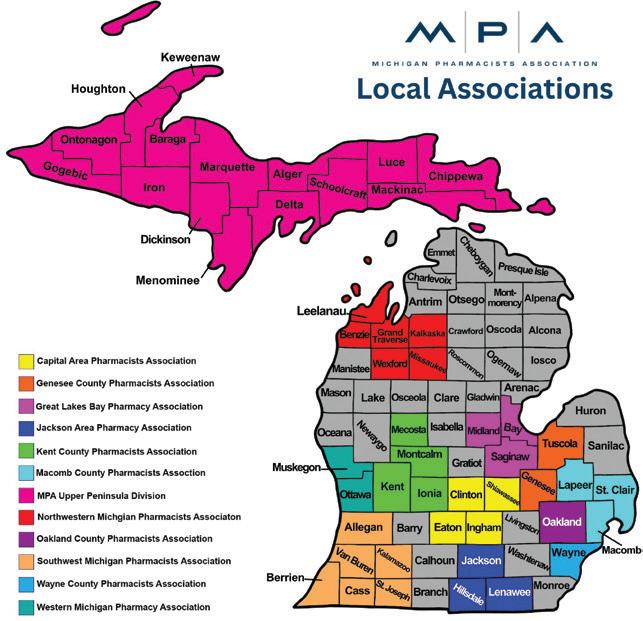
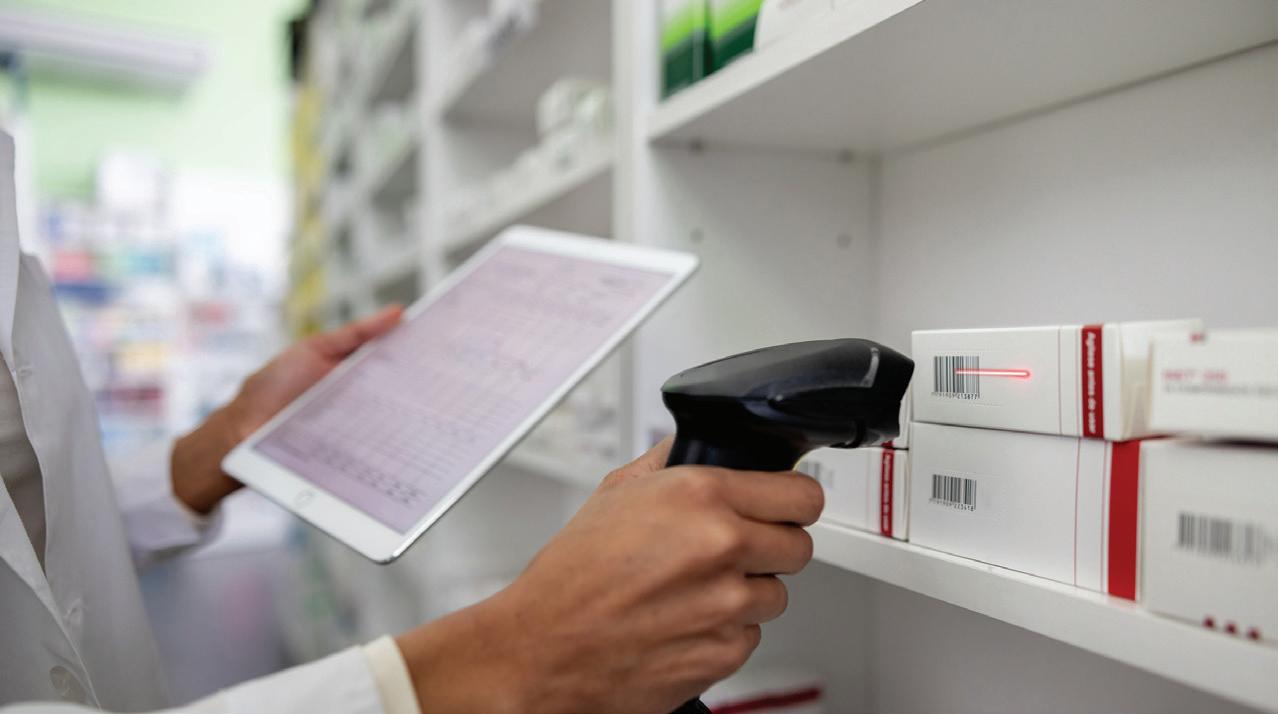

BY RON DEVERS, CIC, CPIA, director of operations, PSI Insurance Agency
The Greek philosopher, Heraclitus of Ephesus, said “the only constant in life is change.” Yet when change happens we are often surprised. Many people are resistant to change, but not all change is bad. Think about changes in society, technology, communications and how most changes are very positive and help us to be more effective and efficient. I think most readers of this would agree that change is constant in the pharmacy world as well.
Look at the changes in the pharmacy professional’s scope of practice. Look at the change in pharmacy technician responsibilities especially as it relates to licensure and involvement in patient care. Who would have thought years ago that pharmacists could fill scripts via email, would be allowed to administer vaccines, or prescribe birth control. Pharmacy professionals continue to prove that they are front line in taking care of patients and community health.
From an insurance standpoint, these changes can present some challenges. As pharmacists and technicians get more added to their scope of practice, it can increase your liability exposure. The first concern is protecting your practice and making sure that your insurance program covers things like immunizations and compounding. Generally speaking, as long as you operate within the scope of your license and are doing
things as outlined in Michigan law, your practice is protected. Individually, it is considered good practice to obtain an individual professional liability policy to protect your personal assets in the event of litigation brought against you personally. The coverage is quite affordable, usually around $150 annually for pharmacists and $99 annually for technicians. You can add the Consulting Services Endorsement for $25 to cover non-medical activities.
Increasingly, healthcare professionals are participating in educational and consulting activities in addition to direct patient care. These activities carry unique legal risks that can be covered under your professional liability policy by adding the Consulting Services Endorsement. Non-medical activities include:
• Medical administration
• Training
• Legal consultation
• Speaking at seminars
• Teaching or acting as an expert witness
• Rendering advice in your area of specialization Call PSI Insurance Agency if you’d like to discuss this important matter further. It’s our business to protect your business.
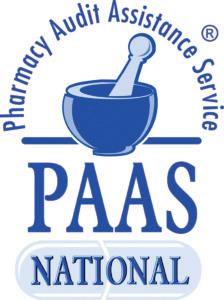
BY TRENTON THIEDE, Pharm.D.,
MBA, president, PAAS National®, expert third-party audit assistance and FWA/HIPAA compliance
Many independent pharmacies offer unique services to their patients, such as house charge accounts and medication delivery, to provide a better customer experience. While these are convenient services to offer patients, they do bring audit risks if they are implemented without appropriate safeguards.
PAAS National analysts have seen numerous PBM audit recoupments for insufficient deliveries and discrepancies linked to insufficient evidence of refill request, copay collection or delivery. Additionally, we have seen audits where the prescriptions were billed for deceased patients.
Review the tips below to ensure that your pharmacy doesn’t incur unnecessary audit risks.
• Home delivery tips
o Require a dated signature from patient/caregiver at every delivery (pre-printed dates on delivery manifests are insufficient)
o Avoid leaving medications in the mailbox or at the door without evidence of delivery (geotagged photos from pharmacy staff are typically insufficient)
o Avoid “automatic refills” and instead implement a “medication synchronization” program that includes a telephone check-in prior to medication billing and delivery to ensure that patient is still alive, living at same address, has not been hospitalized since last delivery (or had medication therapy changes), and to confirm the needed medications prior to scheduled delivery date
o Collect payment at the time of delivery, or implement a robust accounts receivable (“house charge”) process
• Facility delivery tips
o Coordinate with LTC facilities to understand if Medicare patients are in a “Part A” versus a “Private Pay” status as this will dictate whether pharmacy is to bill the facility (if Part A) or Medicare Part D (if private pay)
n Develop written agreements in place that require facility cooperation with retroactive billing changes such as when claims are accidentally billed to Medicare Part D and then subsequently adjusted due to Part A status
o Pre-printed dates on delivery manifests are insufficient, receiving individuals should handwrite the date received
• For additional insight on house charge accounts and copay collection, contact PAAS (608) 873-1342


